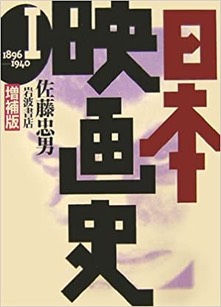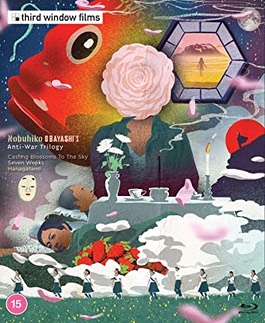News and Opinion
Sato Tadao sensei (1930–2022)

I opened up Facebook on the morning of March 21 and was sad to a post by Ishizaka Kenji, a professor at the Japan Institute of the Moving Image and a coordinator at the Tokyo International Film Festival. The announcement stated that Sato Tadao 佐藤忠男 had died on March 17, 2022. The Japan Institute of the Moving Image eventually put out an official announcement on its home page, since Sato was both Professor Emeritus and former president of the Institute.
Sato was one of the greatest and most influential film critics and scholars in Japan. He was always a bit different from other critics and academics, in part because he never went to college. As he always said, cinema to him was his school. He was born in 1930, and his real name is Iiri Tadao. While working at various jobs, including at the national rail company and an electronics factory, he began writing film reviews and got involved at Shiso no kagaku, an intellectual association led by Tsurumi Shunsuke, which helped define his life-long focus on the popular dimensions of modern entertainment. Working as an editor at Eiga hyoron and other publications, Sato became an extremely prolific writer, publishing over a hundred books on topics not just related to film, but also including manga, education, theater, democracy, war, literature, etc. He also wrote books for younger readers. With his wife, Sato Hisako, who was a strong presence in his work, he founded the film historiographical journal Eigashi kenkyu in 1973, and as a historian, eventually published a monumental four volume history of Japanese film (cover above). As an educator, he began teaching at Imamura Shohei’s film school, which later became the Japan Institute of the Moving Image. Sato eventually became president of that institution. He actively engaged with foreign cinema and critics, attending film festivals and conferences around the world, and serving as director of the Focus on Asia film festival in Fukuoka, helping introduce other Asian cinemas to Japan. He received numerous awards, including the Person of Cultural Merit from the Japanese government in 2019. He is the Japanese film critic who has arguably been translated the most into English, with Currents in Japanese Cinema (1982) and Kenji Mizoguchi and the Art of Japanese Cinema (2011) being two book-length translations.
Writing on Obayashi Nobuhiko’s Anti-War Trilogy

Although I never intended to become an Obayashi Nobuhiko expert, I have nonetheless developed a significant connection with that utterly unique Japanese film director. It started when we invited him and his family to Yale, after which I programmed a retrospective of his work at the Japan Society. He later asked me to contribute to one of his books, and it was only a day or two after he treated my family to dinner in Tokyo that he found he had cancer. We did get to meet him and his wife Kyoko again before he passed away in 2020. I then moderated a commemorative panel discussion on him for Japan Cuts, and have begun putting together an anthology on him with Aiko Masubuchi, the former Japan Society film programmer.
So it was perhaps destiny—as well as quite a pleasure—to get a request from Adam Torel at Third Window Films to pen an article for their BluRay release of Obayashi’s anti-war trilogy, composed of Casting Blossoms to the Sky (2011), Seven Weeks (2014), and Hanagatami (2017).
As I did when announcing the Blu-Ray for Sailor Suit and Machine Gun, here is the first paragraph of my essay:

